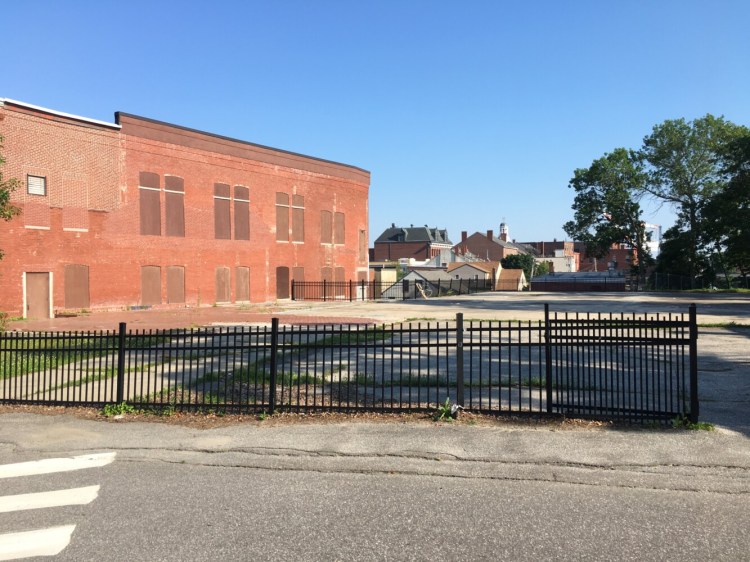BATH — Bath is selling the vacant lot that used to be home to the YMCA to The Szanton Company, a Portland-based housing development company that specializes in mixed-income rental housing.
Bath city councilors approved the sale of 26 Summer St. on Wednesday. The offer was $215,000, which is $5,000 under the 2016 assessed value, according to municipal records.
Also on Wednesday, the council tabled a final decision on where retail marijuana stores would be allowed.
Nathan Szanton, president of The Szanton Company, said he plans to create 45 subsidized and unsubsidized apartment units on Summer Street for families whose head of household is older than 54. He said the age restriction would help solve the parking issue that previously prevented the company from buying the lot.
“In our experience, people in that age category have fewer cars per household than family housing,” said Szanton.
According to Assistant City Manager Marc Meyers, The Szanton Company attempted to purchase the lot when the city tried to sell the property in 2017. The Szanton Company wanted to build apartments but quickly realized there would not be enough parking for all the units and the sale fell through.
“If we offer a middle-class housing option for those who want to downsize, that has the potential to free up a lot of housing for younger families,” said Councilor Phyllis Bailey. “I want to see housing that serves a wider variety of our community rather than one extreme or another.”
The half-acre lot has been empty since 2012 when the old Bath YMCA was demolished after structural problems were discovered. The Bath YMCA relocated to its current home at 303 Centre St. and gave its former property to the city.
Szanton also is looking into acquiring the neighboring Moses and Columbia blocks from Bath Housing, which purchased the property on the corner of Front and Summer Street, as well as a parking lot at 195 Front St., from the Sagadahock Real Estate Association in July. The upper levels of the building hold 10 unsubsidized apartment units.
The Szanton Company expects to either build a standalone building in the lot or acquire the Moses and Columbia blocks and construct a building in the empty lot that combines the two properties.
“We want to work with the city of Bath,” said Szanton. “We need to be in dialogue with the City Council in order to create what works best for the city.”
In a letter of support for the purchase, Mary Terry, chairwoman of the Bath Housing Development Committee, said the committee would be open to selling all or a portion of the Moses and Columbia blocks, as well as arranging a leasing agreement for space in the 195 Front St. parking lot.
Szanton has yet to release a detailed proposal for the property, as the city didn’t require that as part of the bidding process this time around.
The city received two bids for the property — one from The Szanton Company and one from archemedies-investors.com that didn’t include a price bid, according to Meyers.
The Szanton Company has completed eight apartment buildings in Maine and New Hampshire totaling 393 units, one of which is the Huse School apartment building in Bath, which has 59 apartment units.
Pot rules delayed
Councilors said they decided not to make a final determination on locations where marijuana retailers would be allowed until Oct. 2 to allow more time for research and debate.
Last month they gave preliminary approval to an ordinance allowing recreational stores and dispensaries in a wide swath through the center of the city along the north of the Route 1 corridor. Sales will be allowed in the retail areas on Congress Avenue eastward toward Washington Street, encompassing a large section of the city’s downtown.
According to Bath’s proposed retail rules, recreational and medical marijuana stores will be required to be licensed by the state and city and install security measures, including 24-hour surveillance. In addition, passers-by shouldn’t be able to smell marijuana from outside the building.
The rules also set a 500-foot buffer zone around schools, licensed childcare facilities, substance abuse rehabilitation or treatment centers and halfway houses. No two retail stores can open within 300 feet of one another.
Copy the Story LinkComments are not available on this story.
Send questions/comments to the editors.


